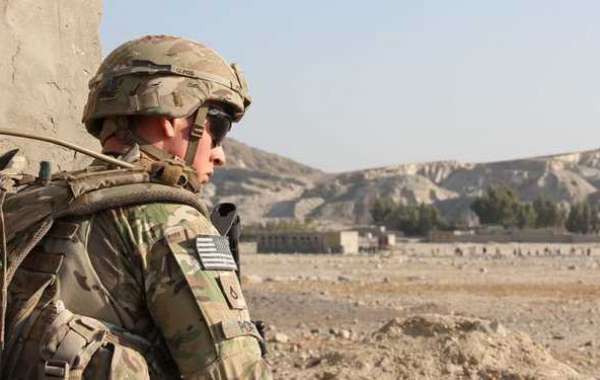Terrorism is a subject of endless debates and one which evokes strong emotions and polarized opinions. This issue is often discussed and not very well understood in international relations. The definition of ‘terrorism’ is still lacking. One can find different definitions in various sources. The wide range of existing terrorism definitions highlights various motivations of the terrorist acts. Terrorism is threatening people with violent acts and damage. In the twenty-first century, it seems that terrorism is everywhere. Terrorism is often stated as one of the reasons for foreign laws and military interventions, and organizations like NATO, the UN and the EU try to coordinate action to counter it. Since the terrorist attacks in September 11, 2001, the focus has been made on terrorism as religious fanaticism of one of the most elusive terrorist groups Al Qaeda, which was headed by Osama bin Laden, who acted under the slogan to murder Westerners as ‘an individual duty for every Muslim’. The United States are not alone in their struggle. Every nation that opposes violence and terrorism is supporting the goal to eliminate terrorism and its roots. It should be noted that terrorism has many forms, and the war on terrorism is not over with the capture of Osama Bin Laden.
Historical Review of Terrorism
Although the term “terrorism” goes back several hundred years to the French Revolution, it is considered to be a very recent addition to modern society. Until the early 1970s, it was hardly visible at all. Before then there was little mention of terrorism in the media. Very few states had laws specifically designed to deal with the threat; there were few organizations specifically devoted to responding to it; and actually no university courses, where students could study it as stand-alone subject. The research asserts that today, terrorism is a major focus of scholarly research and teaching, with thousands of new publications annually and courses on terrorist-related subjects taught in every major university in the world. Terrorism has left very few aspects of human life untouched.
Taking this historical aspect into consideration, it is worth noting that the field of terrorism has grown, especially in the years following the attacks of September 11, 2001. We need to treat terrorism as a phenomenon embedded within broader political, cultural and academic processes. In the past, acts of terrorism were most often described simply as bombing, kidnappings, hijackings, assassinations, and so on. During the 1960 at the height of the Cold War, Western states and their allies were battling anti-colonial movements, left-wing guerrilla groups and revolutionary insurgencies in different parts of the world, such as Indochina, Africa and Latin America.
It is worth emphasizing that foreign terrorists in Iraq present a major threat for the broader world. The United States and the rest of the global community should take into consideration that countries, like Iraq and failed or failing countries, create environments for terrorism to breed. In the worst case scenarios, the governments in failed states can become sponsors of terrorism. The situations in Iraq and Afghanistan are only two elements in the broad panorama of global terrorism challenges and threats. When the Bush administration launched the war against terrorism, the problem was in focus because of 9/11. Many scholars consider that initially the U.S. interventions to Iraq and Afghanistan was a global war against terrorism.
Combating Terrorism
The research asserts that terrorists may act globally and ignore national borders, but they have local roots and support systems. Therefore, it is vital to shift the focus of the war against terrorism to the local level, where it originates. Terrorism is a phenomenon, when killing one person a thousand of others are frightened. Historically, the roots of terrorism were identified by rising population, rapid urbanization, increased poverty, globalization, and others. As mentioned above, terrorism is too complex and diverse to speak easily of causes. It is important to understand the reasons of terrorism, including the attacks by Al-Qaida on September, 11. Today, many observers acknowledge that we have witnessed terrorism undertaken under the banner of nationalism.
The research asserts that combating terrorism campaign that seeks to address a conflicts’ underlying root causes must be based on the appropriate measures. Firstly, governments need to identify the most significant root causes, which are driving the terrorist insurgency threatening them. Such a comprehension effort will generate the basis from which one could select those root causes, whose resolution might yield the greatest benefit to eventual conflict termination. In this process, all root causes, such as poverty, lack of education, political inequality, religious extremism, psychological distress, and others, would be categorized. Secondly, governments then have to formulate a clear definition in their directives and policies about the combating terrorism campaign’s short-, medium-, and long-term strategic objectives. This involves formulating a mission area assessment that provides a roadmap for how strategic objectives can be implemented tactically. Thirdly, the combating terrorism campaign must be coordinated and integrated at all levels of government, especially among the political, diplomatic, law enforcement, intelligence and military establishments.
Bjorgo 2005 studied out the following: In ideal cases, a conflict resolution-based combating terrorism strategy may be the most effective way to resolve a protracted terrorist-based insurgency, where the insurgents represent ‘genuine’ grievances that succeed in mobilizing the local population to support their cause. This does not imply that coercive measures are not necessary as an initial governmental response to nip the insurgency in the bud.
While these coercive measures may be necessary in the initial stages of an insurgency, there are limits to the degree of coercion that democratic governments will employ in their combating terrorism campaign. Thus, for example, democratic governments, such as Israel, will refrain from employing crushing military force to wipe out civilian populations that provide the insurgents with support because of the damage that such devastation would inflict on their own democratic constitutional nature.
To protect people from terrorist attacks, the United States has implemented numerous programs that rely on military, economic, multilateral, law enforcement, intelligence and other activities. It is important to provide diplomatic measures to protect Americans, terminate terrorist attacks, minimize damage, and bring terrorists to justice. Once an attack has occurred, State’s activities include measures to alleviate damage, provide emergency assistance, and protect public health.
The USA and Terrorist Threat
The United States as the leader of the international system, has shaped the global political, economic and security context. Therefore, it positioned to engineer a political solution to the incoming threats of terrorism. The research asserts that not only the U.S public tends to reject Al Qaeda’s goals, but the world Muslim population also rejects its political intensions and violence against civilians. Many people in the Muslim world, such as Lebanon, Egypt, Turkey, Jordan, Morocco, the Saudi Arabia, and the United Arab Emirates condemned the 9/11 attacks. Claiming to target the West, Al Qaeda often delivers harm to innocent Muslims. Only 15 % of Al Qaeda’s victims were Westerners from 2004 to 2008. External to Iraq and Afghanistan, Al Qaeda’s victims were 99 % non-Western, and 96 % in 2007. Overall, a non-Westerner has proven to be fifty-four times more likely to die in an Al Qaeda’s attack than a Westerner.
Muslim publics have increasingly denounced terrorist violence the more Al Qaeda has executed post-9/11 strikes in their countries. Between 2002 and 2009, for example, support for attacks on civilians in Jordan plummeted following the 2006 hotel bombings. In Pakistan, the current foreseeable front in the struggle against Al Qaeda, which has gone from zero attacks to become the world’s leading victim of suicide bombing. 87 % of Pakistanis in 2009 rejected violence against civilians saying such acts were never justified, as compared to shortly after 9/11, when one third stated such acts were often or sometimes justified and only 43 % stated they were rarely or never justified. In Muslim-majority countries, more than seven in ten disapproved of such attacks. Nonetheless, Al Qaeda is sufficiently popular to remain viable despite being hunted by almost every state in the world.
Many historians acknowledge that terrorism is a direct threat to people and their countries, but in most cases it is a threat that originated oversea. The United States are not alone in their struggle. Every nation that opposes violence and terrorism is supporting the goal to eliminate terrorism and its roots. It should be noted that terrorism has many forms, and the war on terrorism is not end with the capture of Osama Bin Laden. This terrorist organization has many cells that will not cease their efforts against the United States simply because Osama Bin Laden is killed. Therefore, even after the combat operations in Afghanistan wind down, there will be a threat of terrorism. The United States is leading the international community’s efforts to assist the people of Afghanistan to create a new better future for their nation and region.
The research asserts that diplomacy is a key to eliminating support and safe haven for terrorists, and maintaining the political will to sustain coalition to fight terrorism. Different measures, such as broadcasting of the Voice of America and Radio Free Europe are increasing in and around Afghanistan and throughout the Middle East to help inform locals about the true nature of terrorist organizations and the purposes of the United States’ war on terrorism. Economic and humanitarian help to Afghanistan and the Middle East countries is also important in the U.S. struggle on terrorism. Therefore, the research asserts that efforts to combat terrorist groups, especially Al Qaeda and insurgent movements threatening the U.S. interests are a central component of the U.S. regional strategy. The United States of America seeks to safeguard the security of its long-standing ally Israel, and also maintain security ties with Pakistan, Turkey, India, Egypt, Jordan, and the Gulf monarchies.
To conclude, it is worth mentioning that terrorism is a subject of endless debates and violence, which evokes strong emotions and polarized opinions. The research has shown this issue is often discussed and not very well understood in international relations. Though a unique definition of ‘terrorism’ is still lacking, one can find different definitions in various sources. All authors have their own definitions. Terrorism is threatening people with violent acts and damage. In the twenty-first century the problem of terrorism has become a number one issue in international relations in the USA. Terrorism is often stated as one of the reasons for foreign laws and military interventions. Since the terrorist attacks in September 11, 2001, the focus has been made on terrorism as religious fanaticism of one of the most elusive terrorist groups Al Qaeda, which was headed by Osama bin Laden, who acted under the slogan to murder Westerners as ‘an individual duty for every Muslim’.
The essay was written by the professional writer from https://papers-land.com/








